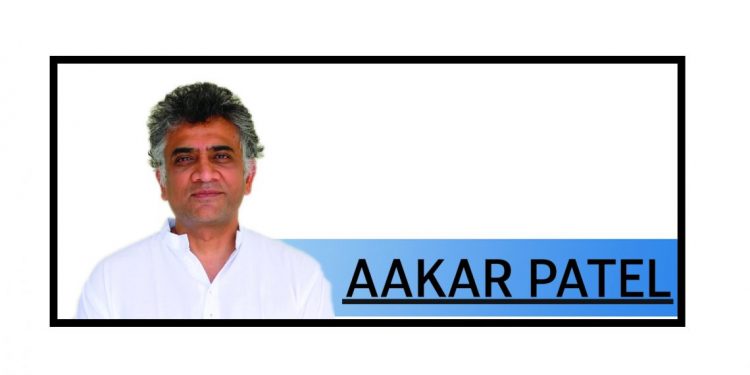On 28 June, India’s foreign ministry put out a strong statement against a report from the United States State Department on religious freedom in India. Our statement said that “as in the past, the report is deeply biased, lacks understanding of India’s social fabric and is visibly driven by vote bank considerations and a prescriptive outlook. We therefore reject it.” Our statement further went on to attack the primary report on which the US State Department was basing its observations. We said that this primary report was “a mix of imputations, misrepresentations, selective usage of facts, reliance on biased sources and a one-sided projection of issues.”
There are a couple of hundred words added to this which talk about our laws and our sovereignty, but sadly do not address the specific accusations that the US State Department has made. What were these?
The US foreign minister (Secretary of State Blinken) said these two things: “In India, for example, Christian communities reported that local police aided mobs that disrupted worship services over accusations of conversion activities or stood by while mobs attacked them and then arrested the victims on conversion charges.” He added: “In India we see a concerning increase in anti-conversion laws, hate speech, demolitions of homes and places of worship for members of minority faith communities.”
This is a fact. We cannot both be proud of the BJP’s bulldozer culture and disown it. It would have been appropriate for us to have addressed these things specifically but we chose not to. Instead, we ended our statement with the words that “in 2023, India has officially taken up numerous cases in the US of hate crimes, racial attacks on Indian nationals and other minorities, vandalisation and targeting of places of worship, violence and mistreatment by law enforcement authorities.” We will come to this later but first let us understand what this US report is that has upset India.
It is an annual report put out by the United States Commission on International Religious Freedom (USCIRF). It claims to be an independent and bipartisan (meaning comprising both Democrat and Republic members) federal (meaning Central) US government entity. For the last five years, every year, it has been recommending sanctions against Indian leaders and institutions. Each year the US federal government, first under Trump and then under Biden, has been avoiding imposing sanctions. If readers remember the US visa ban on Modi 20 years ago, it was because he was put on the USCIRF sanctions list and the then president (Bush) had enforced the sanctions against Modi for the Gujarat pogrom.
Their 2020 report says “India took a sharp downward turn in 2019. The national government used its strengthened parliamentary majority to institute national-level policies violating religious freedom across India, especially for Muslims.”
Our foreign minister Jaishankar’s response was to say that USCIRF was “biased and its tendentious comments against India are not new.” Last year, after India for the fourth year running made it to the list of nations persecuting minorities, our foreign ministry said the report was “biased and inaccurate” and reflected a “severe lack of understanding” of India and its “constitutional framework, its plurality and its democratic ethos.”
This is inaccurate. I have engaged with the USCIRF and find them to be extremely knowledgeable about India.
See this note by one of the USCIRF commissioners, Johnnie Moore, in the 2021 report. He writes: “I love India. I have floated early in the morning down the Ganges in Varanasi, walked every alley in Old Delhi, stood in awe of the architecture in Agra, sipped tea next to the Dalai Lama’s temple in Dharamsala, circled the shrine in Ajmer, and looked in awe at the Golden Temple. All along the way, I have met Christian brothers and sisters who serve the poor selflessly, often in difficult circumstances. Of all the countries in the world, India should not be a country of particular concern. It is the world’s largest democracy and it is governed by a pristine constitution. It is diversity personified and its religious life has been its greatest historic blessing. Yet, India does seem to be at a crossroads. Its democracy—still young and freewheeling—is creating through the ballot box difficult challenges for itself. The answer, of course, is for India’s institutions to draw upon their rich history to protect their values. India must always resist allowing political and intercommunal conflict to be exacerbated by religious tensions. India’s government and people have everything to gain and absolutely nothing to lose from preserving social harmony and protecting the rights of everyone. India can. India must.” These are the people whose views we are dismissing and calling biased. Even if we are to assume that the USCIRF is biased as Jaishankar and the foreign ministry claim, this is not relevant. What they say is relevant. Is it true that Indian minorities are being persecuted by law and policy under the BJP? The answer is obvious to anyone who opens a newspaper and switches on their television set.
Our response threatening to take up violations in the US against their minorities is welcome. As a democracy which says it respects human rights, it is our obligation to point out flaws in other nations, especially in our friends. However, this should be a deep exercise, such as the one the USCIRF conducts, and not as a throwaway statement in angry response to well-founded and accurate accusations against us.
By Aakar Patel







































